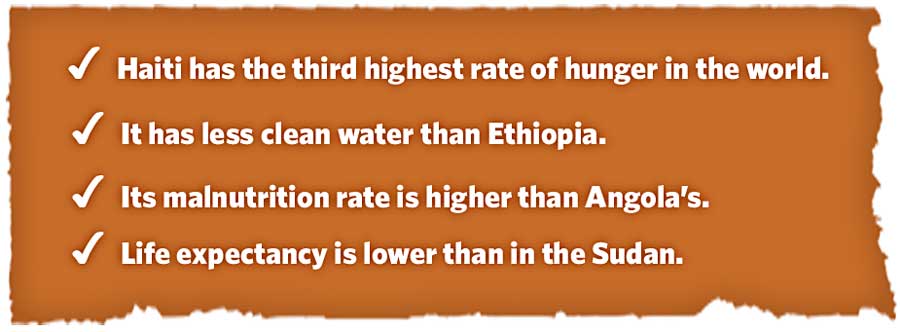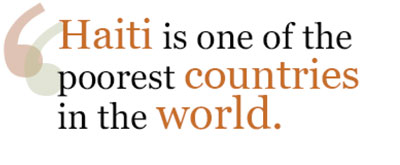
It is located in the Caribbean and shares the island of Hispaniola with the Dominican Republic. Haiti is about the size of the state of Maryland and has a population of more than ten million.
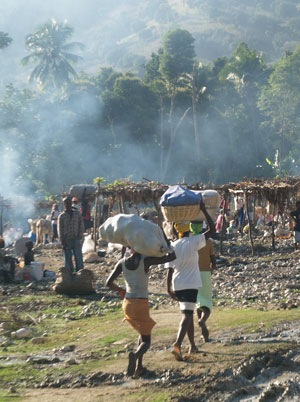
Charcoal Production Takes
the Place of Coffee
Until the 1960′s, Haiti was exporting coffee. Later, when world coffee prices fell so low that Haiti could not compete, they were forced to find something else to plant. They began cultivating corn, peanuts and bananas to feed and support their families.
But it wasn’t long before someone came on the scene and taught Haitian farmers how to make charcoal to sell. Charcoal production became the popular means of livelihood.
No one considered the consequences: that without trees, eventually there would be no timber, no water, and no food.
The inevitable happened: soil erosion and runoff stifled mangroves and coral reefs, as well as killed marine life close to the shore. To bring in a good catch nowadays, fishermen have to go far from the coast, and the majority cannot afford seaworthy boats.
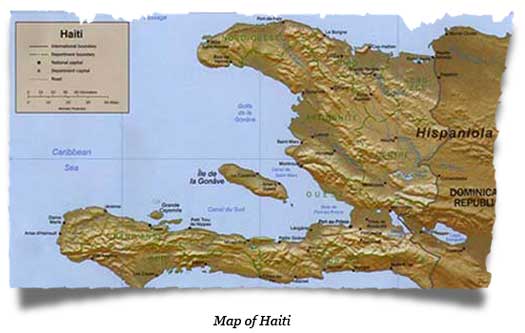
Poor Choices Cripple Haiti’s Resource
Like most other Caribbean islands, Haiti once had lush, thriving forests and ecosystems. But, throughout the years, the Haitian people cut down most of their trees, using them to produce charcoal for commercial use, and as firewood for household cooking needs. As a result, more than 98 percent of the country’s forests have been lost in the last five decades. Widespread erosion since the 1940′s has destroyed an estimated two-thirds of the country’s farmlands; meanwhile, Haiti’s population has quadrupled.
The country is now referred to as “the silent emergency.” Flood waters wash down the mountains like an avalanche, and rivers and lakes are drying up. Tons of garbage and contaminants breed unchecked, spreading disease.
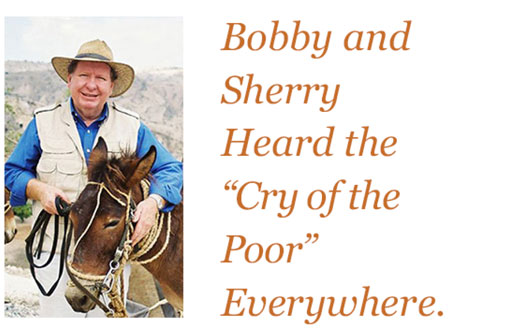
In 1971, Bobby and Sherry Burnette made their first trip to Haiti. The raw, overwhelming poverty broke their hearts. They heard the “cry of the poor” everywhere and in 1991 responded, by moving to Haiti.
“This small country is our neighbor,” shared Bobby. “It is only an hour and forty minutes by plane from the shores of Miami. Jesus taught us to ‘love our neighbor’ and that’s why we are here.”
For Bobby and Sherry, their Haitian mission and the opportunity to inspire others to reach out in some way – large or small – to rescue just one more child is “what makes life worth living!”
